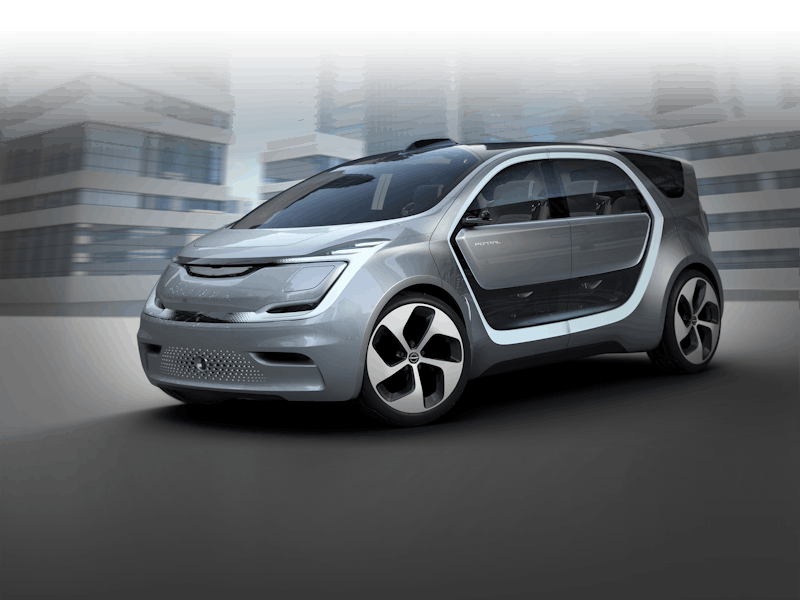Millennials are a weird bunch, spending all their time taking selfies rather than investing in the stock market, or something like that. Thankfully, Chrysler is attuned to the needs of these consumers, and it’s come to a realization. In around 10 years time, these people are probably going to have families of their own. What would those people want out of a future car?
The Chrysler Portal, unveiled Tuesday, intends to answer that question. It’s designed with millennial research in mind, and predictions about how that group will develop, but it faces challenges from rivals that see the future of cars as Uber-style ride-sharing rather than individual ownership. The company claims the Portal is also suited to ride-sharing uses, but its “personal space” underpinnings suggest a car that’s designed for ownership.
Nonetheless, the ideas behind the Portal make sense. Millennials are environmentally-conscious: a 2015 Nielsen survey found that nearly 75 percent are willing to pay more to shop sustainably. They love technology: 2015 Webby research found 90 percent believe technology creates more opportunity. They’re also scared of the future, with a 2016 EIG survey finding that only 38 percent think they’ll have a better standard of living than their parents. Looking to the next decade, Chrysler has taken a decent stab at guessing what people of the future are going to want.
“The Chrysler Portal concept is backed by significant research on the millennial generation,” Tim Kuniskis, head of passenger car brands, said in a statement. “Millennials have clearly defined that they want a vehicle that will grow with them as they experience life changes.”
So, Chrysler built a car aimed at satisfying these needs. It’s high-tech, starting at SAE level three autonomous driving (described as “conditional automation” by the SAE) with the option of reaching level four (“high automation”) with an upgrade. It’s environmentally conscious, with its electric-powered engine capable of reaching 250 miles on a single charge. Chrysler is also positioning it as cost-conscious: the minivan is a versatile configuration that’s capable of moving cargo when needed, transporting kids around should they decide to start a family, and supports upgrades as technology progresses.
In short, Chrysler is positioning this as a “do-all” vehicle. It wants the Portal to act as a “third space” between work and home, and has designed the car with the sort of luxuries you expect in both of those places. There’s eight docking stations to charge your phone, for example, and on-board cameras and computers to provide in-ride entertainment.
Chrysler is clearly banking on some of the trends around millennials holding true over the next decade. A 2013 Gallup poll showed 87 percent of 18-40 year olds want to have children someday, and a 2016 poll showed 46 percent of unmarried adults in their 30s have kids. As time progresses, many millennials will presumably have kids, and Chrysler is assuming that they will have kids around 10 years from now. Chrysler’s own research suggests that one in three drivers will be a millennial 10 years from now.
That’s all well and good, but we’re also talking about future-facing predictions about how people feel about the world, something that’s notoriously hard to predict. Sure, many want kids, and current data suggests they follow through with that intention, but we also know they’re environmentally conscious and worry about cost savings. What if these millennials grow up into a world where ride-sharing takes off, and owning your own car is seen as an expensive waste of the earth’s resources? Will a vehicle aimed at personalization and comfort sit right with this group?
There’s already signs that car ownership could change radically over the next decade. Tesla has floated the idea of a ride-sharing service where self-driving cars ferry passengers around, and Volkswagen’s Moia subsidiary is aimed at capturing this nascent market for the industry veteran. Even today, more than half of millennials have used ride-sharing services like Uber and Lyft, and driverless cars are only going to make this simpler. If you can easily hail a car for the family to come pick you up, will it still make sense to own your own car?
The Portal is an exciting concept, but time will tell as to whether millennials will invest in a personal car in 10 years time.
